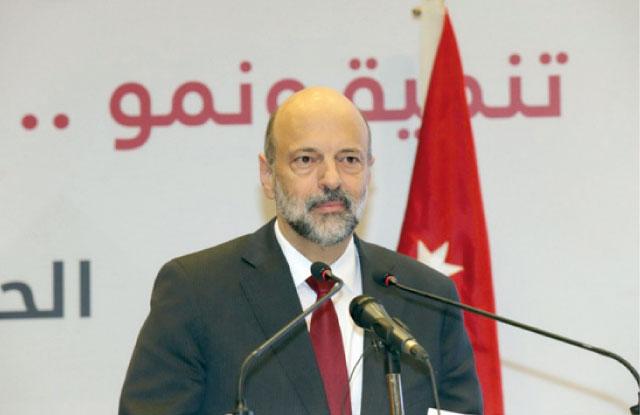You are here
Economists laud impact of gov’t incentives on citizens, warn of growing national debt
By Bahaa Al Deen Al Nawas - Dec 29,2019 - Last updated at Dec 29,2019
AMMAN — Following the announcement of the fourth and final government incentives bundle to stimulate the national economy, economists have praised various positive aspects of the stimulus package, while voicing some concerns, especially regarding national debt.
“The bundles attempt to stimulate the national economy, which has been at a halt for the past 10 years, especially with foreign investments regressing, but the announced incentives will most probably be implemented at the expense of the budget, whose deficit is constantly on the rise,” Economist Mazen Irsheid said.
He highlighted the third bundle, which increased salaries, a “positive aspect” that he expects will improve mass consumption, boosting spending and the consumer price indexes, which “have been at their lowest”.
The government envisions that increasing citizens’ purchasing power and spending could reflect well on its revenues, the economist said, noting, however, that the implementation of the bundles “seems to rely heavily” on new debt and loans, with higher interest rates.
“The bundles do alleviate the burdens on the public and encourage investment, but the current deficit estimated after considering grants amounts to nearly JD1.2 billion, which is a very large number — the largest in the history of the Kingdom,” Irsheid told The Jordan Times in a recent phone interview.
The economist noted that, although the government announced it will not impose new taxes or increase current ones, there might be an increase in electricity and water bills, which could happen soon in 2020, because “these bills are technically not under the category of taxes”.
“I am not very hopeful about national economic indicators. We might have a positive view about increased spending through the increased salaries, but the fear lies in rising debt and deficit,” he concluded.
Economist Husam Ayesh said that the four packages aim at inducing economic growth and improving services provided to the public, drawing in positive feedback from citizens and increasing morale, especially around the salary increase in the third bundle and the announcement that there will be no new taxes or rise in existing ones.
“The bundles, nonetheless, are not expected to bring a big leap in economic growth in the near future, but they might keep the economy from regressing further,” Ayesh told The Jordan Times.
He concurred that the bundles will likely burden the budget and cause the deficit to expand, noting that “it is hard to feel hopeful” about the executive packages’ impact on the economy and investments when considering the government’s debt.
“There should have been a fifth bundle focused on taxes, especially sales tax, as it is of the utmost importance in stimulating the economy given its effect on citizens, economic sectors and investors,” the economist said, suggesting that sales tax be lowered in an “organised and just manner” to reduce burdens on low-income families and increase taxes on the high-income segment.
Regarding the fourth bundle in specific, Ayesh commended the government’s approach of focusing spending on education, health and transport.
“Investing in education, such as the KG2 level, is investing in the country’s human resources,” the economist said, also highlighting the need to develop the transport sector in a strategic way.
The first package, announced at the end of October, provided incentives in the real-estate sector, focused on boosting exports and production and introduced measures to improve employment opportunities for Jordanians.
The second package lowered taxes on electric cars, removed the vehicle weight tax, reduced and controlled government purchases and resolved bureaucracy issues.
The third package focused on increasing the salaries of employees and pensions for retirees in the public sector and the military.
The fourth and last bundle, announced on December 24, focused on improving services in the education, health and transport sectors, which will see over 50 per cent of the government’s capital spending, as Prime Minister Omar Razzaz announced at the time.
Related Articles
AMMAN — The government on Thursday announced the third of four executive packages to improve the national economy, which focuses on increasi
AMMAN — The government on Monday announced the fifth executive package that aims at improving the business environment and simplifying measu
AMMAN — The government this week will launch the fourth and final executive package to strengthen the national economy, which will focus on













